In the dynamic business landscape, where customer loyalty and satisfaction are paramount, the role of a Customer Experience Manager (CX Manager) has become increasingly critical. This pivotal position is at the heart of ensuring customers not only remain engaged with your brand but become vocal advocates for it. But what is a CX Manager? And why does your company need one?
This article delves into the essence of the CX Manager role and customer experience salary insights and illustrates the significance of having a CX Manager in today’s business environment.
What Is a Customer Experience Manager?
A typical CX Manager job description looks something like this:
A Customer Experience Manager is a professional tasked with overseeing and improving all aspects of a customer’s interaction with a company. Their primary goal is to enhance customer satisfaction, loyalty, and advocacy. This involves a deep understanding of the customer journey, identifying touchpoints where their interactions can be improved, such as frontline employee performance, and implementing strategies to enhance the overall customer experience (CX).
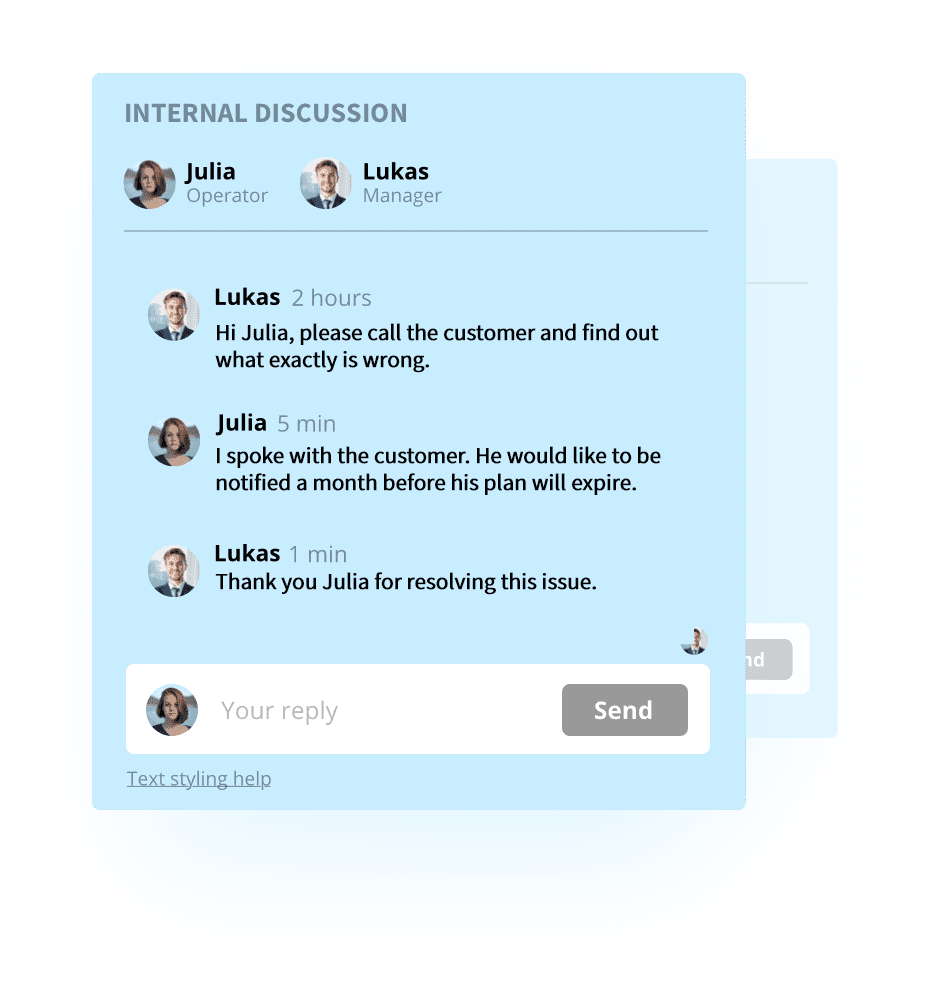
- Training and development: Invest in training programs that equip employees with the skills needed to excel in customer service. Additionally, provides opportunities for career advancement.
- Feedback loop: Create a system where employees can share their insights and feedback on improving customer experience, making them feel valued and involved in the company’s success.
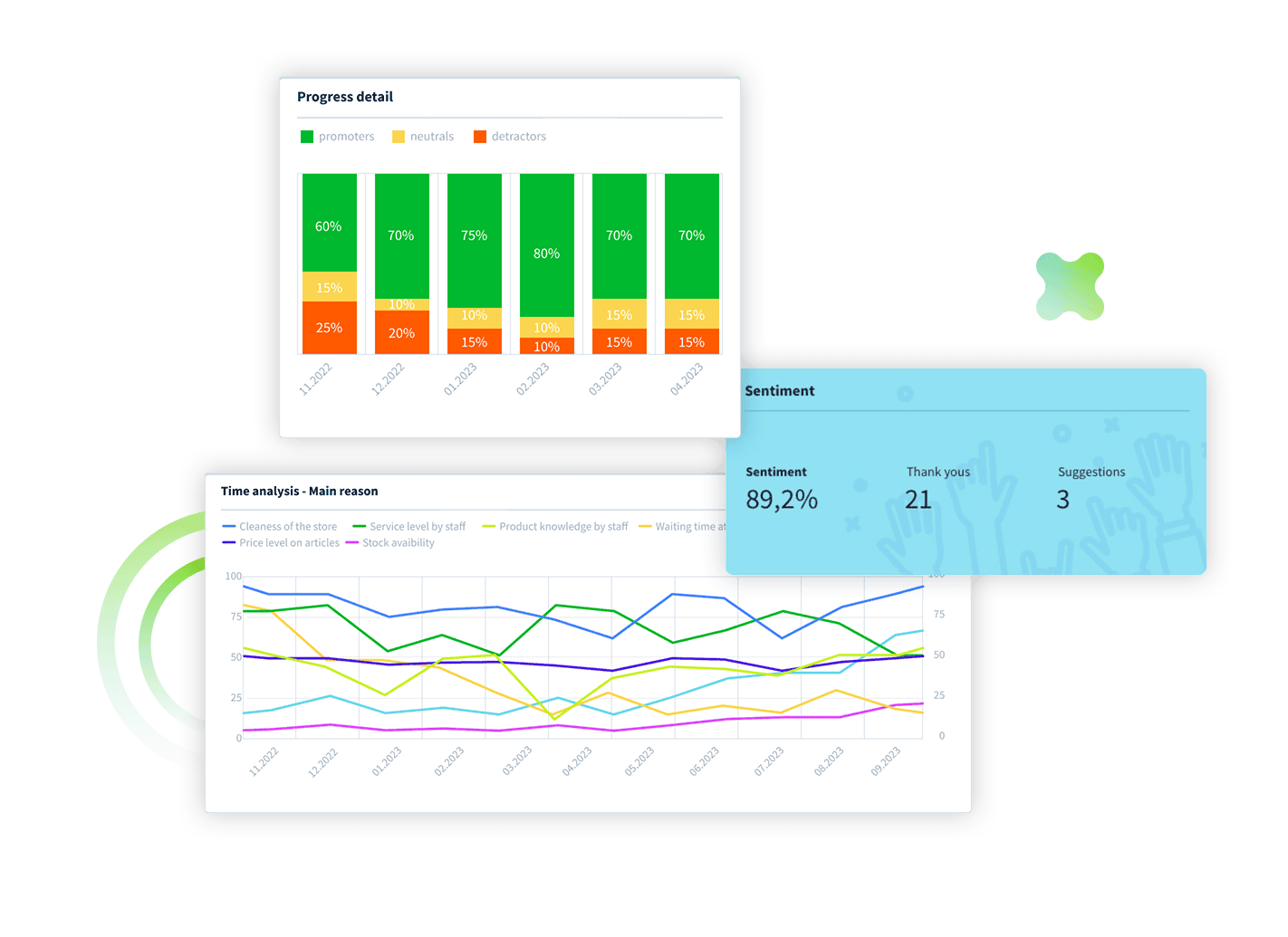
- Implementing CX strategies: Based on their analysis, a CX manager develops and implements strategies aimed at enhancing customer satisfaction and loyalty.
- Collecting customer feedback: A CX manager is responsible for gathering and analysing customer feedback, usually using a customer satisfaction survey, to make informed decisions about improving the customer experience.
- Cross-functional collaboration: A CX manager works closely with other departments, such as marketing, sales, and product development, to ensure a cohesive customer experience.
- Monitoring and reporting: They track the effectiveness of CX initiatives and report on their impact to the company’s stakeholders.
- Overseeing customer service and frontline employee performance management: A CX manager also plays a crucial role in monitoring the performance of customer service representatives and other frontline employees. By pairing customer feedback with specific employees, they can gain deeper insights into the effectiveness of customer-facing staff. This enables the identification of training needs or adjustments in processes to improve the performance of customer service.
CX Operations and Management
The operational side of customer experience, often referred to as CX operations or CX ops, involves the systems, processes, and technologies used to deliver and improve customer experiences. This includes everything from customer service software to feedback collection and analysis tools. Effective customer experience operations are crucial for CX managers to implement their strategies successfully.
CX operations
CX operations refer to the groundwork and infrastructure that supports the delivery of a superior customer experience. It involves the practical application of tools, technologies, and processes that enable businesses to understand, measure, and improve the way customers interact with their products or services. This includes:
- the deployment of customer service software like CRM (Customer Relationship Management) platforms, chatbots, and helpdesk solutions that facilitate direct communication with customers
- the implementation of CX feedback collection systems, such as customer surveys and feedback forms, and the analysis of these data to identify areas for improvement
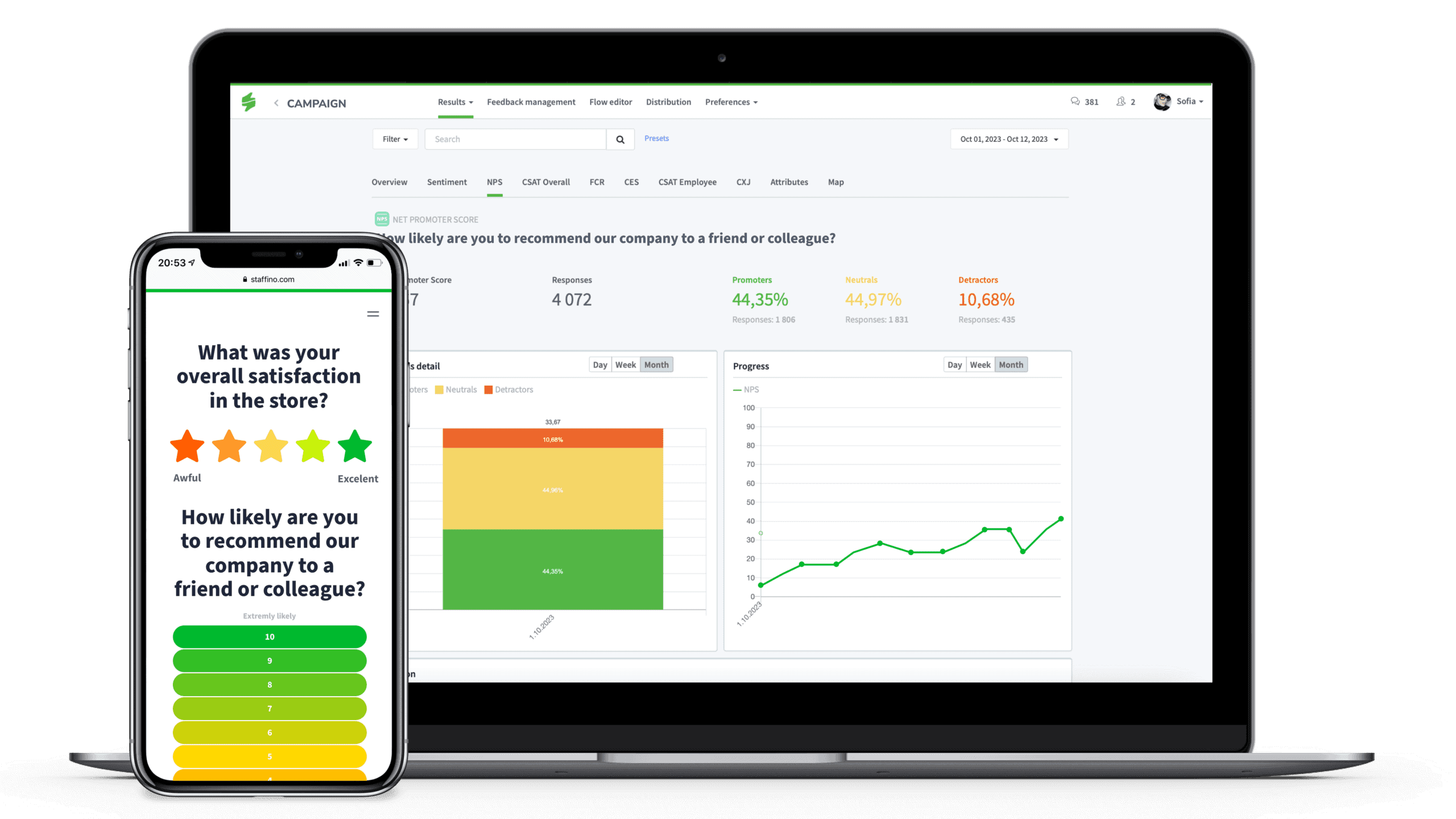
An example activity within CX operations could be the integration of a new omnichannel support system that allows customers to reach out through their preferred communication channel, be it email, chat, or social media, thereby streamlining customer interactions and ensuring a consistent experience across all touchpoints.
CX Management
CX management, on the other hand, focuses on the strategic aspect of customer experience. It involves planning, overseeing, and optimising the overall approach to CX within an organisation. This includes:
- setting CX goals and objectives, developing customer personas, mapping customer journeys, and designing strategies to enhance the customer experience at every stage
- the coordination of cross-functional teams to implement CX initiatives and the monitoring of key performance indicators (KPIs) to measure the effectiveness of these strategies.
- measure performance of customer-facing staff through key transactional metrics such as CSAT or NPS in order to improve customer service.
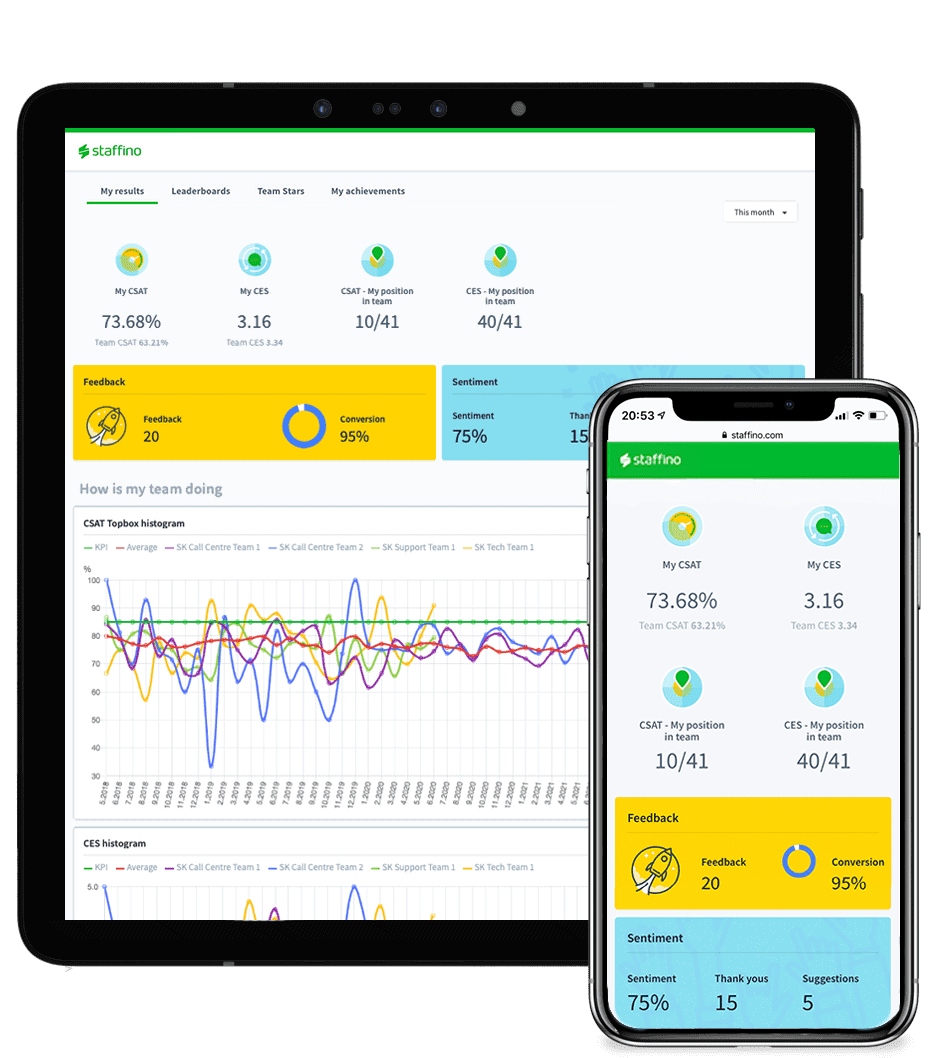
An example activity within CX management could be conducting a comprehensive customer journey mapping exercise to identify pain points and opportunities for enhancing the customer experience, followed by developing and executing targeted initiatives to address these areas.

Boost Customer Experience with NPS, CSAT & CES
Get the most accurate and actionable insights into your customer satisfaction with Staffino's CX metrics. With automated surveys and effective reporting, you can quickly gain valuable insights into your customer journey.
The Importance of a CX Manager in Your Business
What does CX mean in business? Everything! Customer experience can be a significant differentiator for businesses, which is why having a CX Manager is absolutely essential. The benefits of hiring one are listed below.
1. Building customer loyalty
A great customer experience is not just about meeting expectations; it’s about exceeding them in ways that are both memorable and meaningful. A CX Manager focuses on understanding the nuances of customer needs, preferences, and behaviours and then crafts strategies that deliver beyond the basics.
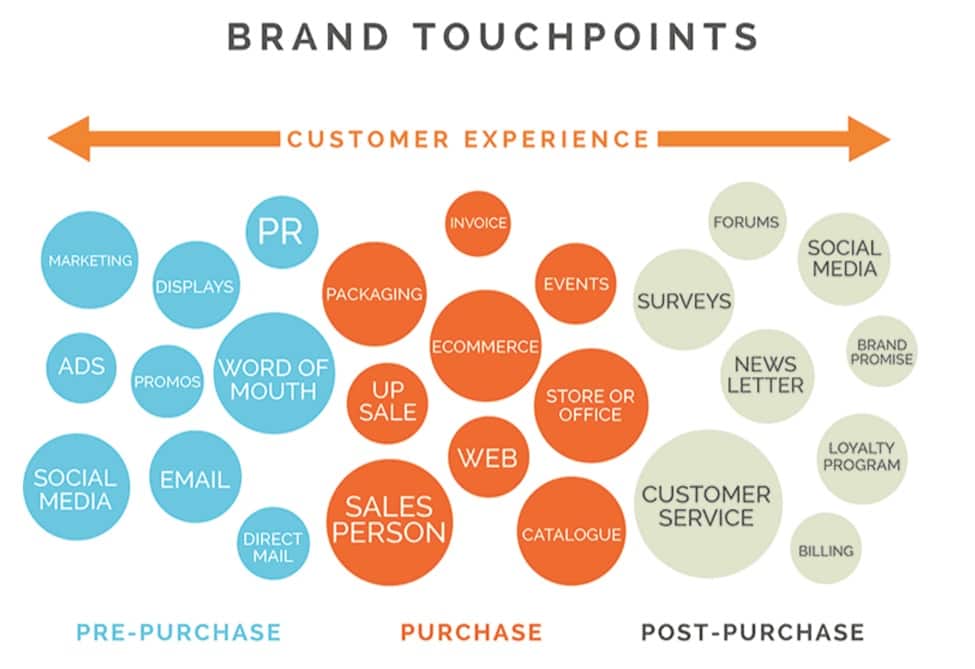
This might involve personalising interactions, ensuring consistency across all touchpoints, and proactively addressing potential issues before they escalate. By doing so, customers develop a sense of attachment and trust towards the brand, making them less likely to switch to competitors. Building customer loyalty not only secures a steady stream of revenue but also transforms customers into brand advocates.
2. Boosting customer advocacy
Satisfied customers are the most effective promoters of a brand. They share their positive experiences through word-of-mouth, social media, and other channels, acting as organic growth engines. A CX Manager enhances customer advocacy by creating delight in every interaction. This involves not just solving problems but also surprising and pleasing customers in unexpected ways.
For example, recognising and rewarding customer loyalty or going above and beyond in response to feedback. Such actions make customers feel valued and more inclined to spread the word about their experiences, effectively amplifying the brand’s reach and appeal.
3. Improving brand reputation
In today’s digital age, a brand’s reputation can be made or broken in the court of public opinion. Positive customer experiences lead to positive reviews, ratings, and social media mentions, which collectively enhance a brand’s reputation. A CX Manager plays a critical role in orchestrating these experiences and monitoring feedback across platforms to address any negative perceptions quickly. They also leverage positive feedback to build a strong brand image that attracts new customers.
4, Enhancing Customer Service Quality
By diligently monitoring customer feedback related to specific employees, a CX Manager can identify top performers as well as those who may require further training. This process of employee performance review and adjustment leads to an enhanced quality of customer service provided by frontline staff.

A CX Manager also ensures that every customer interaction is as positive as possible through rewards and recognition of exemplary service, which fosters a culture of continuous improvement among the staff, ultimately benefiting both the customers and the business.

Give Your Employees the Recognition and Motivation They Deserve
Does your team need a little extra motivation? Our platform provides powerful insights into your team’s performance and various recognition tools that help ensure everyone feels appreciated.
5. Driving revenue growth
Enhanced customer satisfaction and loyalty directly contribute to the bottom line. A CX Manager helps in identifying key customer segments and tailoring experiences to meet their specific needs, thereby increasing the likelihood of repeat purchases.

Moreover, by analysing customer feedback and behaviour, a CX Manager can uncover opportunities for upselling and cross-selling, further boosting revenue. Loyal customers also tend to be less price-sensitive, meaning they’re more likely to pay a premium for the quality of service and experience they associate with the brand. Over time, this leads to increased customer lifetime value, driving sustainable revenue growth.
Customer Experience Manager Salary Insights
The demand for skilled CX professionals has led to competitive salaries in the field. While salaries can vary widely based on location, experience, and the specific industry, here are some insights about the salary range for customer experience lead jobs:
- CX Manager salary: The average salary for a CX Manager can vary significantly but is often seen as a reflection of the role’s importance within a company. The average salary for a CX Manager in Western Europe can range from approximately €40,000 to €80,000 per year. In countries with higher living costs and stronger economies, such as Germany, France, or the Netherlands, salaries might lean towards the upper end of this range or slightly above

- CX Operations Manager salary: CX Ops Managers, who focus more on the operational aspects of customer experience, also command competitive salaries due to their critical role in executing CX strategies. CX Ops Managers can expect to earn between €45,000 and €85,000 annually. Again, this range can vary based on the specific location, with capitals and major cities often offering higher salaries to reflect the cost of living.
- Director CX salary: Those who reach director-level positions in customer experience, overseeing broader strategy and implementation, can expect higher salary ranges, reflecting their leadership and impact on the company’s success. For CX director-level positions, salaries can range from about €70,000 to over €120,000 per year. In some cases, particularly in larger companies or in high-cost living areas, salaries could even exceed this range.
It’s important to consider that these figures are estimates and can differ based on the variables mentioned. Additionally, many senior-level roles come with benefits and bonuses that can substantially increase the total compensation package. Always research specific industries and regions for the most accurate and up-to-date information regarding customer experience lead salary.
What Is CX Technology? Can It Replace a Human CX Manager?
Customer experience management platforms have revolutionised the way companies collect feedback, analyse data, and respond to customer inquiries. However, the question arises: Can such technology replace a human CX manager?
How CX Technology Works
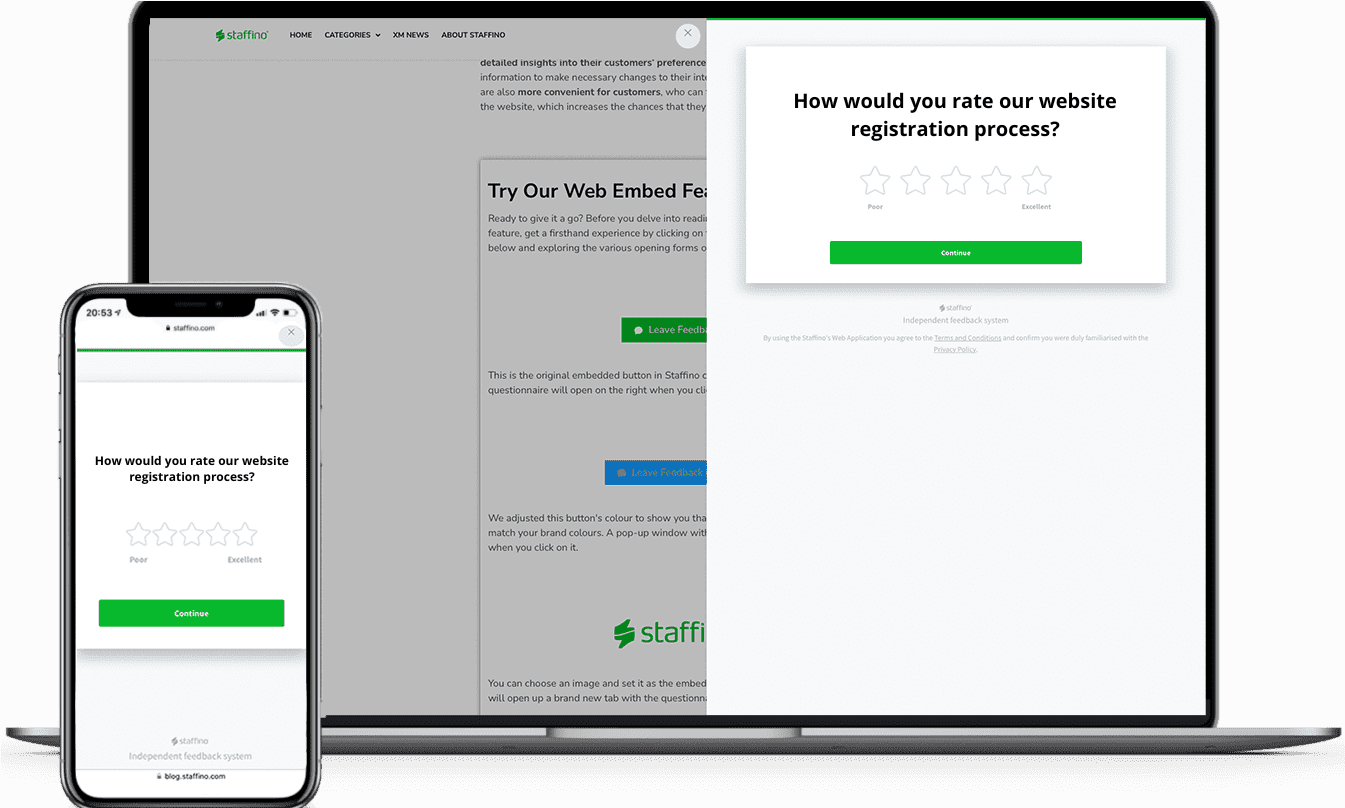
Customer experience management platforms such as Staffino are designed to streamline the process of managing customer feedback across various touchpoints. These platforms offer an integrated approach to collecting feedback, whether it’s through surveys, websites, or direct customer interactions.
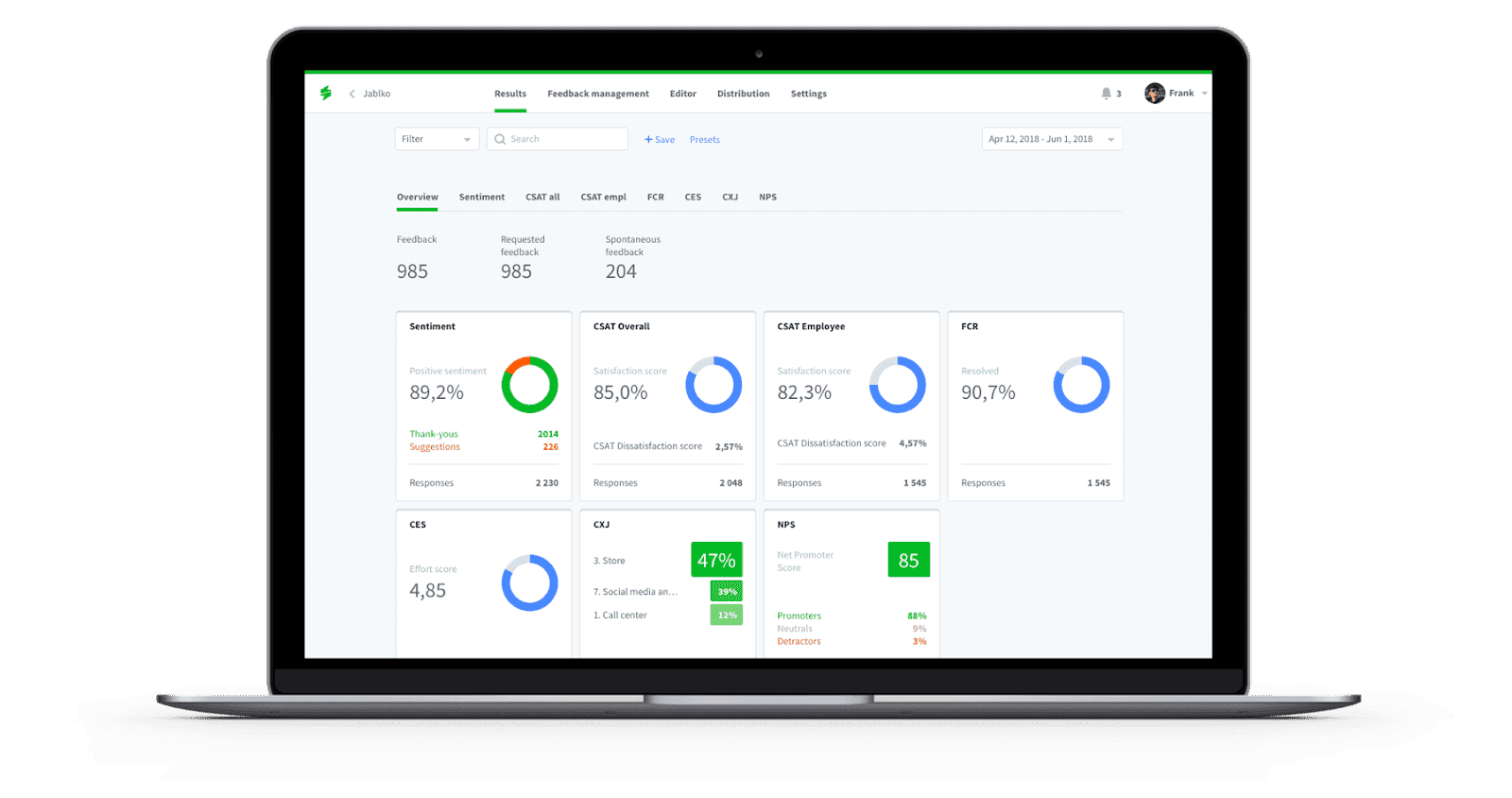
Once the feedback is collected, the technology employs advanced AI-driven analytics to sift through the data, identifying key patterns, trends, and areas of concern that need attention, which are then displayed on CX dashboards.
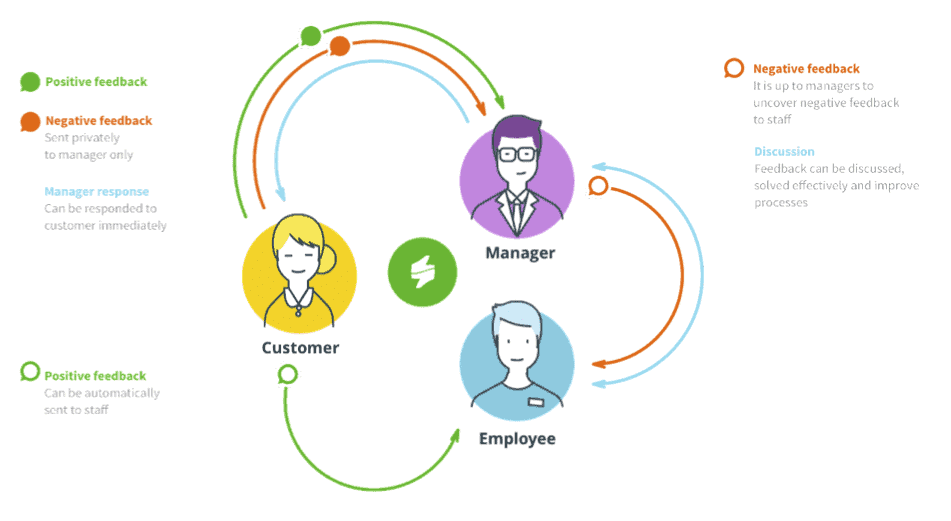
One of the most significant advantages of CX technology is the ability to analyse and respond to customer feedback in real-time. This closed loop feedback system enables businesses to quickly address customer issues, leading to improved satisfaction rates and loyalty. Moreover, these platforms often come equipped with tools for automating responses to common inquiries or AI response generators, further enhancing efficiency and ensuring that customers receive timely support.

Get Actionable Insights with Closed Loop Feedback Management
With Staffino, you'll never leave a customer unhappy again! Streamline the process of collecting and responding to feedback, identify areas of improvement, and make sure that customer issues are addressed quickly and effectively.
The Role of Human CX Managers
Despite the advanced capabilities of CX technology, the role of human CX managers remains irreplaceable. While technology can collect and analyse data, it lacks the nuanced understanding and emotional intelligence that humans bring to the table.
“Thanks to the simplicity of the Staffino platform and the ability to internally discuss each case directly within the app, we’ve been able to retain 70% of customers who were likely to leave.”
Vladislav kupka
Expert CX Consultant, Staffino
Human CX managers are responsible for interpreting the data, understanding the context behind customer feedback, and identifying the underlying issues that technology alone might overlook. They play a crucial role in crafting personalised responses to complex customer complaints, ensuring that the solutions provided are both effective and empathetic.
Furthermore, human CX managers are pivotal in bridging the gap between customer feedback and organisational change. They work collaboratively with various departments, from product development to marketing, to implement improvements based on customer insights. This cross-functional coordination ensures that the feedback collected leads to meaningful changes that enhance the overall customer experience.
The Synergy Between CX Technology and CX Managers
The most effective approach to customer experience management is one that combines the efficiency of CX technology with the insight of human managers. While technology like Staffino can handle the heavy lifting of collecting and analysing vast amounts of data, human managers play a critical role in interpreting this data and translating it into actionable strategies.
Human managers are also essential for managing the emotional aspects of customer interactions. They provide a level of empathy and understanding that technology cannot replicate. Their ability to connect with customers on a personal level, understand their concerns, and provide tailored solutions is what ultimately drives customer loyalty and satisfaction.
Unable to Hire a Full-Time CX Manager?
Partnering with CX consulting experts is a viable alternative! These professionals can provide customised advice and strategies to improve customer interactions, fitting various budgets and needs. Investing in customer experience, whether through a dedicated manager or CX consultancy, is key to ensuring the long-term success and competitiveness of your business.

Get a First-Hand Experience Today!
Staffino is the perfect tool for creating engaging surveys, tracking performance, responding to customer feedback, and rewarding top employees. Get started today with our FREE demo!









